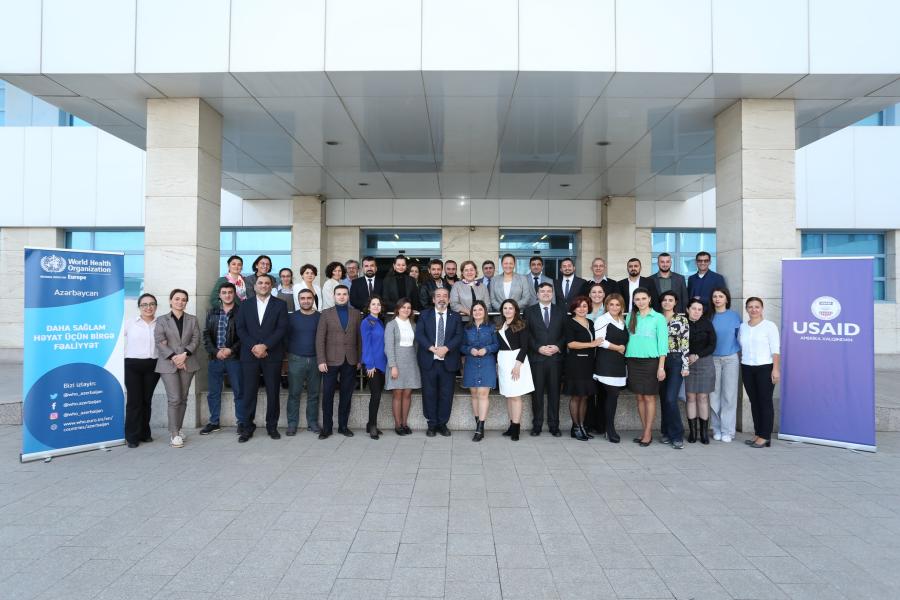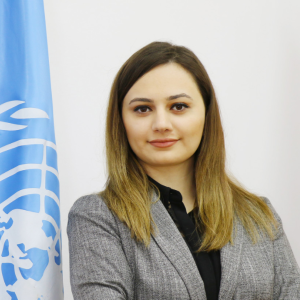The USAID-WHO joint project trained 34 doctors
03 November 2022
- Two training programs have been completed within the framework of the Azerbaijan Pandemic Response Activity (APR) funded by the United States Agency for International Development (USAID) and implemented by the WHO Country Office in Azerbaijan.

The 12-day adaptation training for emergency care doctors at the Yeni Klinika Training Center was aimed at advancing the knowledge and skills of 24 doctors in important areas such as basic life support, advanced life support, and trauma life support, as well as included training sessions on working as a team member, communication, and training skills. The training serves to improve the efficiency of the emergency medical care system in Azerbaijan and is expected to cover more than 2000 doctors and 6000 other medical workers over the next two years.
The certificates of the participants who completed the training program were presented by WHO Representative in Azerbaijan Dr. Hande Harmanci and USAID Mission Director Angelina Allen-Mpyisi. Dr. Hande Harmanci congratulated the participants on the completion of the first step of the 2-year long process of learning and working together and expressed confidence that this selected group of young doctors will be the champions of the transformation of the emergency medical care system in Azerbaijan. She also thanked the project partners for their support in organizing the training.
"USAID is pleased to support these talented professionals who will help transform the emergency medical care system of Azerbaijan," said USAID Acting Mission Director Angelina Allen-Mpysi. She also thanked government partners for their support and close cooperation.
Ulvi Mirzoyev, representative of the Ministry of Health, Rashad Chobanli, representative of the State Agency on Mandatory Health Insurance, and Teymur Mirzabeyli and Sakina Azizli, representatives of TABIB with all of whom WHO closely cooperated in organizing the training, also participated in the event and shared their recommendations with the participants.
In addition, through the APR Activity health professionals’ education focus area, an 8-day Basic Faculty Development Program was organized at the Azerbaijan State Advanced Training Institute for Doctors (ASATID) with the participation of 10 faculty members of the institute. This program helps to advance the participants' knowledge and skills in educational leadership, developing educational programs, teaching in small and large groups, organizing skills training in clinical settings, modern methods and principles of evaluation, effective feedback providing, and other teaching skills.
The program is expected to cascade into 80 more trained faculty members (half of all faculty) and healthcare professionals at ASATID, as the trained faculty members will continue their teaching activities at the institution. Along with WHO experts, Tayyar Eyvazov, the vice-rector of ASATID, took part in the ceremony for presenting certificates to the graduates of the program and emphasized the importance of expanding similar trainings for strengthening the healthcare system of the country.
The USAID-WHO joint APR Activity is implemented in collaboration with the Ministry of Health, the State Agency for Mandatory Health Insurance, and TABIB and focuses on emergency medical care services (ECS), the public health system (PH), infection prevention and control (IPC) in health care facilities and health professionals’ education (HPE) in Azerbaijan.
WHO Country Office, in partnership with USAID, will continue to expand training activities to support the healthcare workforce capacity building in Azerbaijan.



